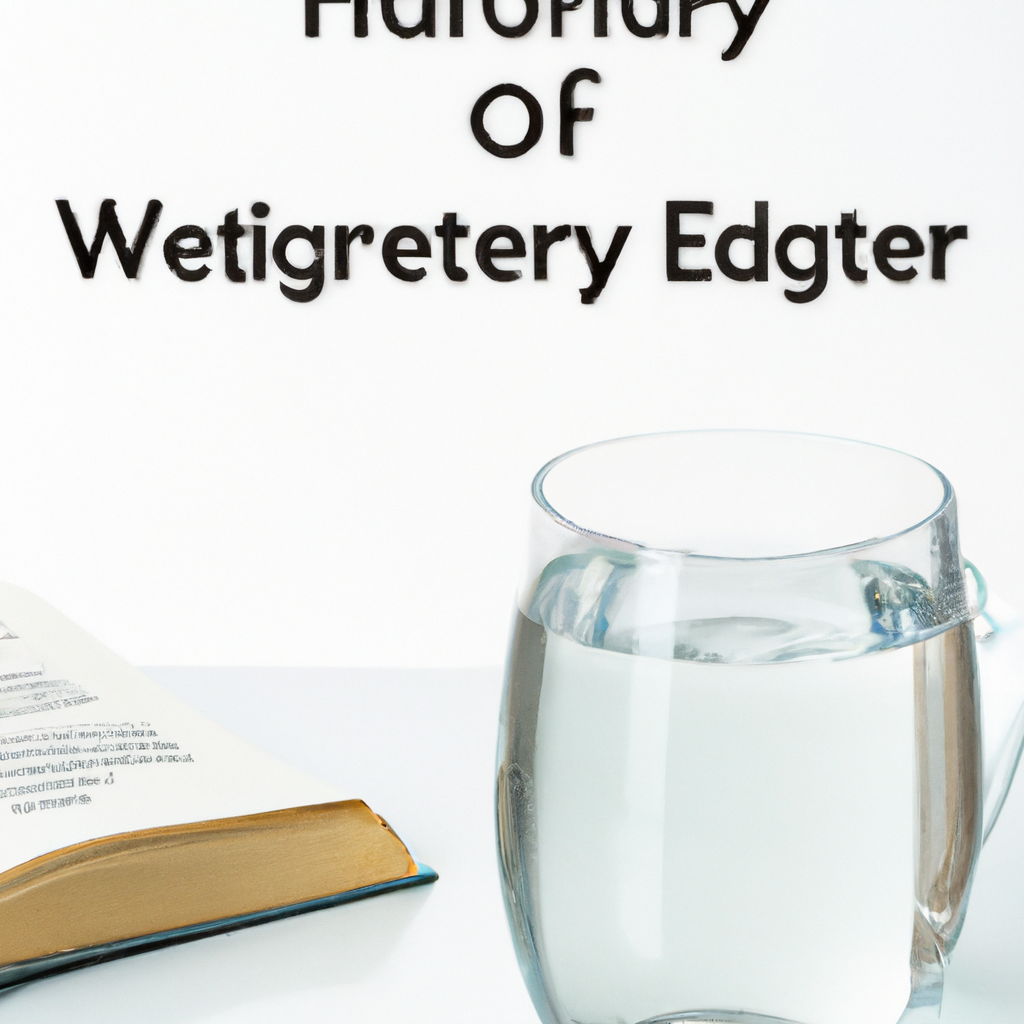As our bodies age, we must be especially mindful of their needs. Some of the most important of these needs are often overlooked, such as proper hydration. While we all know to bring a bottle of water when running errands, this is especially vital for elderly individuals. In this article, we will explore the role of hydration in elderly health and discuss how to ensure proper water intake for loved ones and ourselves.
1. Quenching the Thirst for Good Health: Hydration and the Elderly
Hydration is an important part of staying healthy and thriving, and it is especially vital for elderly people. As we age, our bodies change and our hydration needs may become more focused. Good hydration will help those in their elderly years boost their over-all wellbeing.
Why Elderly People Need a Special Focus on Hydration
- Water carries vital nutrients to cells in the body, which helps if age has weakened organ and tissue function
- Drinking enough water helps prevent falls, as hydration levels have an effect on balance and coordination
- Adequate hydration reduces risk of decreased kidney, heart, and muscle function related to age
Elders must be aware of what hydration can do for them, but also be aware of the potential problems overdosage of fluids can cause. It’s important to strike a balance with fluid intake so as not to cause other serious health problems.
Common Drinks for Seniors
Water is the best source of hydration for elders, but it can be difficult for them to get adequate amounts through drinks alone. Supplementing water with these drinks can make it easier for seniors to get the fluids they need:
- Fruit and vegetable juices
- Low-fat milks, like skim and almond
- Soups and vegetable purees
- Flavored sparkly water, such as lightly flavored seltzer or LaCroix
- Nutritious smoothies, made with frozen fruit and yogurt or dairy-free alternatives
Keeping the elderly hydrated is a vital piece of their overall health. Hydration can be achieved by providing the right drinks and pay attention to overall fluid intake in the elderly.
2. Staying Hydrated: Why It Matters for Older Adults
Dehydration and Its Impact on Elders
As we age, the body loses its elasticity. It becomes harder to stay hydrated and keep the body sufficiently hydrated without diligent effort. Elderly individuals may become dehydrated more often for a variety of reasons, such as:
- A decreased ability to maintain body temperature
- Eating less or limiting food and beverage intake
- Having an impaired sense of thirst
By not being adequately hydrated, aging adults can suffer from health problems such as fatigue, confusion, dizziness, and urinal tract infections. Dehydration can even lead to more serious complications such as excessive weight loss, electrolyte imbalance, blood clots and heart attack. Furthermore, dehydration can add to a senior’s confusion due to how it affects the brain, as well as contribute to falls, as the body is weakened when hydration levels are unstandard.
Tips for Staying Hydrated
Given the risks presented by dehydration and its impact on a senior’s health, it’s important to do whatever possible to prevent dehydration or to recover quickly from it. Here are some tips for staying adequately hydrated in older age:
- Drink plenty of fluids every day
- Eat foods that are high in water content, like cucumbers or melon
- Carry around a bottle of water
- Limit alcohol and caffeine consumption to avoid dehydration
Senior citizens should also be aware of warning signs that they may be experiencing dehydration. They include: dark urine, dry and sticky saliva, dry skin, feeling faint, rapid heartbeat and increased fatigue.
3. Measuring Up: How Much Water Do the Elderly Need?
For elderly individuals, staying well hydrated can be one of the best ways to protect their health. According to one study, elderly men and women can have up to a 30 percent reduction in the intensity of common ailments such as dizziness and headaches if they stay hydrated.
So, how much water do elderly individuals need? Well, the amount varies for each person, with factors such as health, activities and environment playing a role. However, the median recommendation from experts advise drinking eight 8-ounce glasses or two liters of water per day (which is the equivalent of about four normal-sized water bottles). This should ensure an elderly individual remains healthy and hydrated.
When it comes to the elderly, the water intake may need to be adjusted according to their conditions. Here are some other tips that may help ensure an elderly individual stays hydrated:
- Encourage a diet that is mild (low in spices, fats, and sugar), as it may aid in hydration.
- Limit caffeine and alcohol intake, if at all possible.
- Stick to regular routines, and urge the elderly individual to drink plenty of fluids with meals.
- Encourage the individual to snack and drink fluids throughout the day.
It is important to be mindful of the elderly individual’s water intake, as their bodies tend to be more delicate and dehydrate easier. And keeping good hydration habits goes beyond having eight glasses of water a day. During the summer or in environments with high temperatures, the elderly may need more water. Following these tips can help them stay healthier and more comfortable.
4. Strategies for Ensuring Good Hydration in the Elderly
Staying Hydrated for Optimal Health
Proper hydration is essential for our health, even more so in the elderly. As we age, the body’s ability to stimulate thirst decreases dramatically, while the kidneys become less efficient at conserving fluids. That’s why it’s important for elderly loved ones to stay mindful of their fluid intake.
Here are a few strategies to ensure good hydration in the elderly:
- Ensure that fluids are stored at eye-level. An elderly person’s sight may not be as acute as when they were young, and maintaining visibility of drinks can help them stay mindful and hydrated.
- Encourage seniors to drink plenty of fluids each day. Suggest for them to opt for water or naturally flavored drinks like iced tea and diluted fruit juice. If they need extra flavor, squeeze fresh fruit and herbs in their drink.
- Remind them to sip fluids throughout the day, rather than drinking large amounts of fluids at once. These sips should include water as a form of hydration, and also caffeinated drinks, like tea or coffee.
- Make a habit of providing snacks like yogurt, smoothies, applesauce, and fresh fruit. These snacks provide added benefits of vitamins, minerals, and hydration.
- Suggest that they track their fluid intake. Help them to establish a drinking schedule or use the same refillable water bottle so they can track their water intake.
These strategies can help foster good hydration in the elderly. However, it’s important to watch for signs of dehydration in seniors, like dizziness, confusion, and dry mouth or skin. If these signs are present, medical attention should be a priority.
Making sure that elderly individuals take enough fluids every day is essential for maintaining their health. Proper hydration helps them to maintain vital bodily functions and support their well-being. With the right knowledge and strategies, even the elderly who are bedbound can be sure to drink enough water and enjoy a healthier life.



